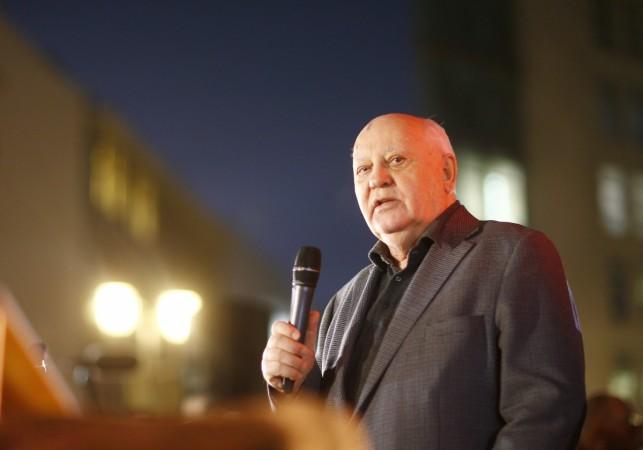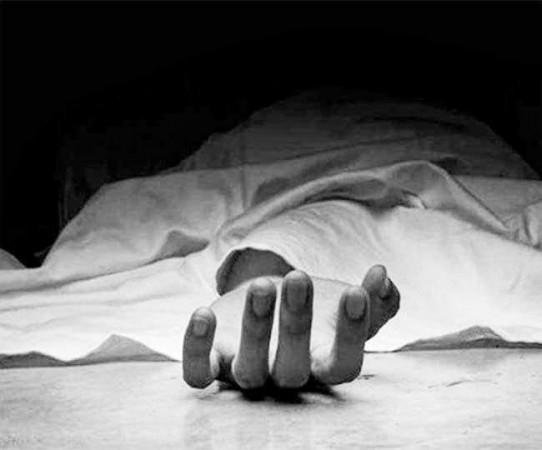Former Soviet Union leader Mikhail Gorbachev, the last of the titans in Russia who sought economic reforms through his famous 'glasnost' (openness) and 'perestroika' (reconstruction), died in a hospital in Moscow. He was 91.
Gorbachev, an unquestioned titan who embarked on a path of radical reform that brought about the end of the Cold War, reversed the direction of the nuclear arms race and relaxed Communist Party controls in hopes of rescuing the faltering Soviet state but instead propelled it toward collapse, has died in Moscow.
He was awarded the Nobel Prize for peace in 1990 which he shared with the US President then.

His death on Tuesday was announced by Russian news agencies, citing the government hospital where he was being treated, but no further details were immediately available, The Washington Post reported this evening.
For the sheer improbability of his actions and their impact on the late 20th century, Gorbachev ranks as a towering figure. In 1985, he was chosen to lead a country mired in socialism and stultifying ideology. In six years of cajoling, improvised tactics and increasingly bold risks, Gorbachev unleashed immense changes that eventually demolished the pillars of the state.
Gorbachev introduced the first genuinely competitive elections for a legislature, allowed civil society to take root and encouraged open discussion of dark passages in Soviet history.
At the same time, Gorbachev suffered failures. After a failed coup attempt by hard-liners in 1991, a weakened Gorbachev finally relinquished power to even more radical reformers led by then Russian President Boris Yeltsin. The Soviet flag came down from the Kremlin in December 25, 1991.
In the shadow of Stalin and war, Gorbachev was born March 2, 1931, in the small village of Privolnoye, in the black-earth region of Stavropol in southern Russia. Famine struck the region in 1933, when Gorbachev was just two.
Gorbachev entered Moscow State University, the country's most prestigious, in September 1950, a peasant boy in the bustling metropolis. He arrived with only a village school education, and friends who had acquired more learning in their earlier years often teased him. Gorbachev joined the Communist Party in 1952.
While at the university, Gorbachev met and married Raisa Titorenko, a bright philosophy student. She initially shunned the village boy, but he eventually charmed her.
On the evening of Sunday, March 10, 1985, Gorbachev took a call from the Kremlin doctor, Yevgeny Chazov. Chernenko had died of a heart ailment and complications from emphysema. The next day, Gorbachev was selected to be the new general secretary.
Ended Cold War
Gorbachev and Reagan met in Reykjavik, Iceland, on October 11-12, 1986, for what was supposed to be a quick discussion but soon blossomed into much more. They improvised, argued and bargained their way toward the deepest cuts in strategic nuclear weapons ever contemplated in the nuclear age.
However, at the very end, on October 12, a Sunday afternoon and early evening, Gorbachev demanded that Reagan confine his missile defense research to the laboratory. Gorbachev had planned this challenge to Reagan all along. The president refused. They abruptly broke up, and the summit ended without a deal.
The breakdown seemed to be a diplomatic disaster at that moment, but later it led to new progress in nuclear arms control. Over the next year, Reagan and Gorbachev agreed to eliminate an entire class of nuclear-armed missiles, the intermediate-range rockets in Europe, signing a treaty to scrap them at the Washington summit in 1987, where Gorbachev spontaneously stopped his limousine on Connecticut Avenue and began shaking hands with thrilled passersby.
In 1988, Gorbachev announced a massive pullback of conventional troops in Europe in a speech at the UN. However, it was later revealed that while Gorbachev and Reagan were negotiating nuclear weapons reductions, the Soviet Union continued to operate a sprawling, hidden biological weapons program in violation of its treaty obligations.

On December 25, Gorbachev resigned and turned the nuclear weapons controls over to Yeltsin, as president of the Russian Federation. Gorbachev gave a short speech from the Kremlin.
When he took office in 1985, Gorbachev said, he felt it was a shame that a nation so richly endowed, so brimming with natural resources and human talent endowed by God, was living so poorly compared with the developed countries of the world.
He blamed the Soviet command system and ideology, and he blamed the "terrible burden of the arms race". The Soviet people had "reached the limits of endurance," he said.
"All attempts at partial reform, and there were many, failed, one after another. The country was losing its future. We could not go on living like this. Everything had to be drastically changed."

















